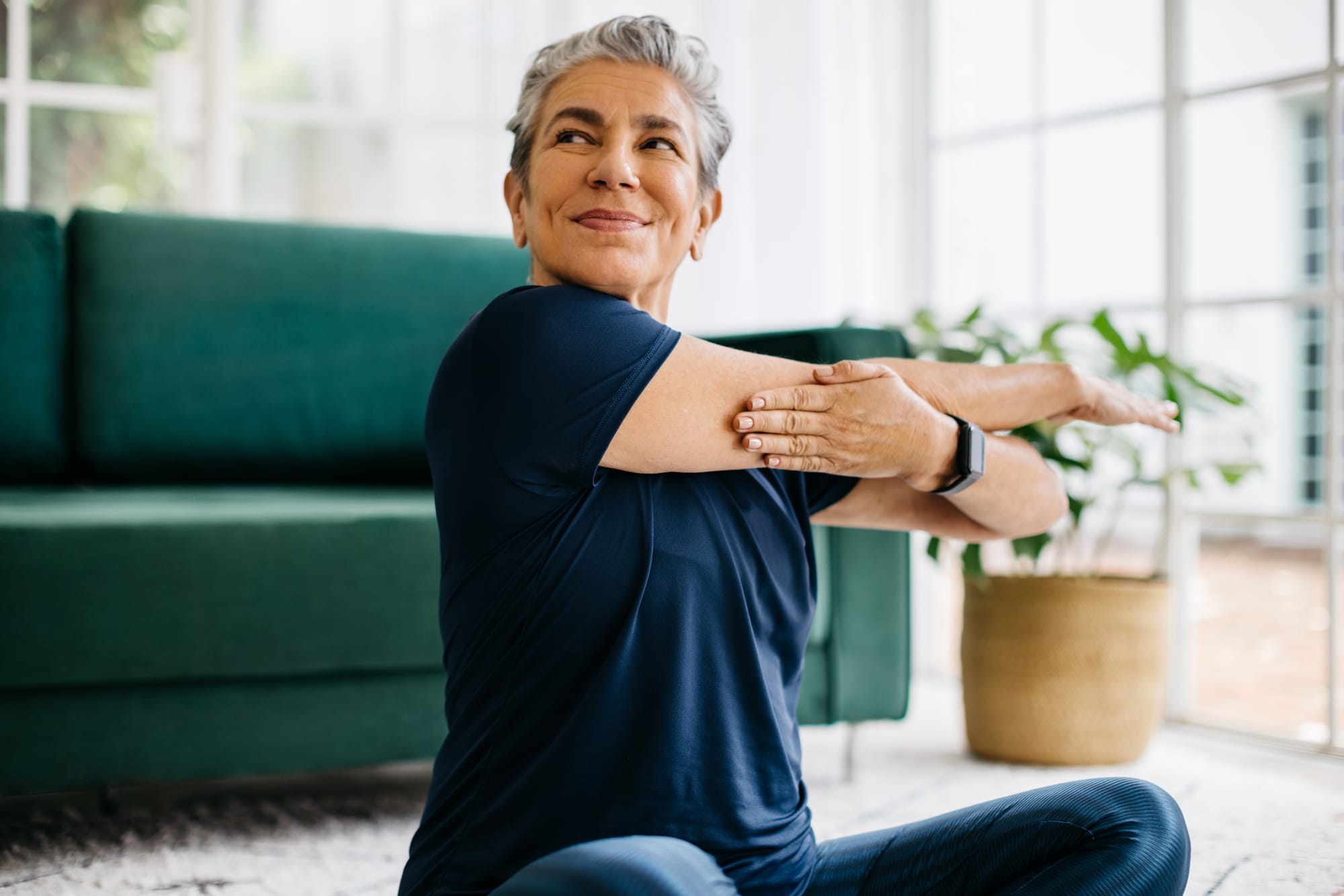Lifestyle Medicine, Choice and Empowerment - helping you move through menopause on your terms

World Menopause Day is observed every year on 18 October. For 2025, the International Menopause Society has chosen “Lifestyle Medicine in Menopausal Health” as the theme: a welcome shift that recognises simple, evidence-based lifestyle actions can sit alongside medical options to support health, symptoms and long-term wellbeing.
Why “lifestyle medicine” matters and what it actually is
Lifestyle medicine focuses on person-centred, behavioural approaches that support healthy eating, physical activity, restorative sleep, stress management and avoidance of harmful substances, alongside social connectedness, to prevent and treat chronic disease across the life course. For menopause this means practical, low-risk strategies that can reduce vasomotor symptoms, improve sleep and mood, protect bone and heart health, and enhance quality of life when combined with, or instead of, medical treatments. The IMS has published a White Paper this year outlining the evidence and a framework for integrating these approaches into menopausal care.
You can read the paper below:
Your power: informed choice, not one-size-fits-all care
Modern menopause guidance emphasises shared decision-making: honest, balanced conversations between you and your clinician about the benefits, risks and alternatives to treatments such as HRT, CBT and lifestyle strategies. UK guidance (NICE) and other professional bodies recommend individualised care meaning HRT is a valid and often effective option for many, but it should be discussed alongside lifestyle measures and other therapies so you can choose what fits your needs, values and health history. Empowerment means having the information and support to make that choice. You can read the guidelines, alongside the British Menopause Society's advice on following them, here: https://thebms.org.uk/publications/nice-guideline/
What the evidence says - simple wins you can try now
Research on lifestyle-focused interventions for menopause shows benefits across multiple areas: fewer and less severe hot flushes for some people, better sleep and mental wellbeing, improved weight and cardio-metabolic markers, and positive effects on bone health when combined with strength exercise. These approaches are adaptable, low-cost, and often helpful whether you take HRT or not. (They are not a guaranteed replacement for medication in every case, but they increase your options.)
Here are some practical, evidence-based steps from the IMS paper to consider:
- Move regularly
A combination of aerobic activity and strength training supports mood, sleep, bone and heart health. Aim for consistent, enjoyable movement rather than perfection. - Prioritise sleep
A routine bedtime, reducing late caffeine/alcohol, and sleep-focused strategies (CBT-I where needed) can reduce symptom burden. - Eat whole foods
More plants, fibre and varied plant sources supports gut health, weight management and may reduce symptom severity in some studies. Small sustained changes beat dramatic short-term diets. - Manage stress & connection
Mindfulness, paced breathing, social contact and activities that reduce cortisol help with hot flushes and mood. - Avoid risky substances
Smoking increases cardiovascular and bone risk; cutting down alcohol can improve sleep and mood.
Where medical treatment fits in: a balanced view
Hormone replacement therapy (HRT) remains the most effective option for many menopausal symptoms (especially hot flushes and night sweats) and is recommended as a first-line option in many cases, but it’s not the only route. Some people prefer non-hormonal options or a lifestyle-first approach; others combine HRT with lifestyle changes for best effect. The key is an individual plan developed with an informed clinician and regular review.
How to make empowered choices:
- Gather reliable info
Use trusted resources (professional society toolkits and NHS/NICE materials) rather than ads or social media claims. imsociety.org+1 - Track what matters
Symptom diary, sleep log, mood and activity notes help you and your clinician understand what’s changing. - Ask for a shared decision conversation
Ask about benefits, risks, alternatives and how a treatment plan will be reviewed. NICE - Choose a starting point
Try a structured lifestyle plan for 6–12 weeks, start HRT, or combine approaches... whichever fits your priorities. - Review & adapt
What works now may change; routine follow-ups let you refine treatment.
Where to find trustworthy support and tools
- The International Menopause Society has a World Menopause Day engagement toolkit and the 2025 White Paper on lifestyle medicine (downloadable factsheets and pledge cards). imsociety.org+1
- NICE provides guidance and a discussion aid to support shared decision-making on HRT and other management options. NICE
- National campaigns and clinical groups (e.g. Active Menopause / BSLM initiatives) offer practical exercise and wellbeing resources aimed at midlife women. British Society of Lifestyle Medicine
A note from #menomoves - your choices, your pace
At MenoMoves we believe movement and community are powerful tools in the menopause toolkit, but they’re only part of the picture. Lifestyle medicine gives you practical, everyday actions that improve resilience and wellbeing. Medical treatments give symptom relief and risk management for many. The best care is the one you choose, informed by clear facts and supported by professionals who listen.
Final thought
World Menopause Day 2025 asks us to widen the conversation: menopause care is broader than a single pill or programme. Lifestyle medicine doesn’t replace choice - it expands it. The goal is simple: more women empowered to pick the path that fits their bodies, lives and values.
Sources & further reading
International Menopause Society — World Menopause Day 2025 (theme & toolkit)
IMS White Paper: The Role of Lifestyle Medicine in Menopausal Health (2025)
PubMed summary/review on lifestyle medicine interventions in menopause
British Society for Lifestyle Medicine / Active Menopause resources on physical activity in midlife